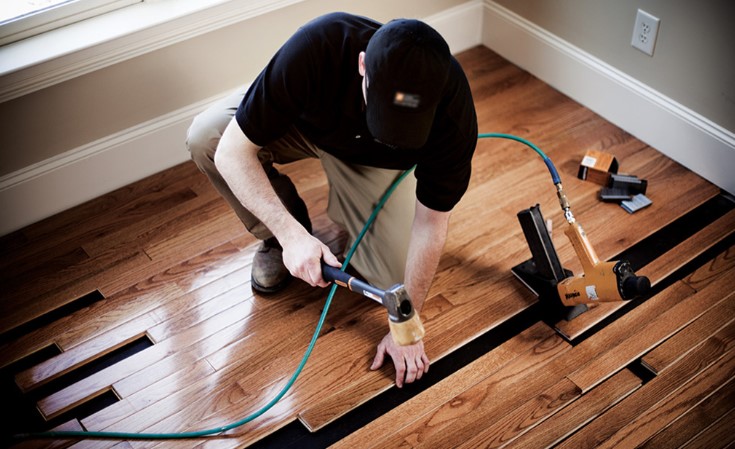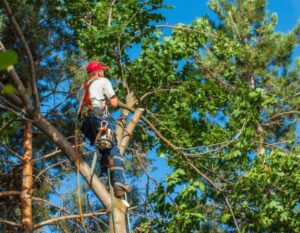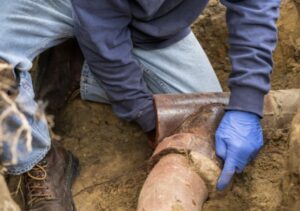Teen volunteers staff Oregon’s crisis support line to help peers facing mental health challenges
Oregon ranks amongst the worst states for youth psychological ailment and obtain to care. William Brangham went there and identified a method experiencing major burdens, but 1 exploring for methods. It is component of our new sequence, “Early Warnings: America’s Youth Psychological Wellbeing Disaster.” A warning: this story features conversations of suicide and depression.
The transcript of the clearly show is provided below.
Amna Nawaz: It is been over a calendar year because the U.S. surgeon general issued a dire warning about the point out of younger Americans’ psychological overall health.
To dig deeper into that disaster, William Brangham recently traveled to Oregon, which ranks among the worst states for youth mental health issues and entry to care. He uncovered a procedure experiencing large burdens, but a person seeking for alternatives.
It’s element of our new collection Early Warnings: America’s Youth Psychological Overall health Crisis.
And we want to enable you know in advance this tale consists of conversations of suicide and melancholy.
William Brangham: It feels like a rec home with string lights and beanbag chairs. And it typically sounds like one. But what is taking place here is a exclusive method to supporting youthful individuals who are in disaster.
This is the get in touch with center for YouthLine in Portland, exactly where young adults subject phone calls from other teens who are struggling.
Volunteer: Even now genuinely courageous of you to get to out about some thing so difficult.
William Brangham: A group of Volunteers staffs the enable line each day. They choose calls, texts and chats, and the challenges they hear about operate the gamut.
Volunteer: Mainly because it appears like you have a extensive time and you actually care about her.
Fiona, YouthLine Volunteer: They reach out when they are suffering from a crisis. That can imply plenty of issues. That can be some thing smaller, like relationship struggles or friendship troubles, household issues, but it can also suggest, like, a lot more acute crises, like self-damage or suicide.
William Brangham: Every single Volunteer gets more than 60 hrs of training, and master’s level supervisors are continually on standby in the area, listening in and examining together, prepared at a moment’s notice to stage in if a conversation will get too serious.
Associated: Oregon YouthLine
Mia, YouthLine Volunteer: We’re not health care professionals. We’re like a sidekick, truly. There’s like — and they’re — like, the individual has the selection to pick out what they want to do.
They are like the hero of the story. We’re just there to aid them to make that alternative.

Emma Cooper, remaining, chats with a different volunteer in this March 2021 file photo at Oregon YouthLine, a private teenager-to-teen guidance and disaster procedure in which teenagers link by means of text, chat, e-mail and cellular phone.
Courtesy of YouthLine
William Brangham: Research suggests that teenagers cope improved with tension when they interact with their friends, rather than older people.
So, the Volunteers, pay attention, empathize, and, if needed, assistance determine out a prepare for finding treatment. Only in rare instances did YouthLine have to have to make contact with crisis services.
Fiona: We just have a substantially much better perspective on what it is like to be a teenager currently and the complexities that will come with and the strain that that can set on your mental overall health.
William Brangham: And the require is evidently developing. YouthLine started off more than 20 yrs ago, and, in 2013, it acquired around 1,400 contacts, quite a few coming from in state.
But, by 2021, matters experienced exploded, with pretty much 25,000 yearly contacts from all throughout the place.
But is it a very good concept to have teenagers area these phone calls? And what effects might that be acquiring on the Volunteers on their own?
Emily Moser is YouthLine’s director.
Emily Moser, Director, YouthLine Systems: Woven into all of the mentoring, all of the training are these — these safeguards for these young folks, that we have make contact with facts for their moms and dads. We can achieve out to them if they will need to.
They do test-ins each working day right after every shift. We undervalue the ability of what young people today can do to support other young people. As grownups, it is uncomplicated for us to say, they can’t do that. But they can.
Relevant: PBS NewsHour
William Brangham: Seventeen-12 months-outdated Aditi Khanna has been a YouthLine Volunteer for about 10 months.
Aditi Khanna, YouthLine Volunteer: All people attempts to go immediately in direction of, like, solving a little something. Like, you can not often address everyone’s concerns. And just telling them that you hear them, I consider that’s the largest distinction involving what we’re striving to do and what any one else is.
William Brangham: Like many who get the job done here, Aditi herself has faced some mental health and fitness problems. She was identified with despair and anxiousness in seventh grade.
Aditi Khanna: It is so substantially more challenging than you would like consider it to be, suitable, simply because it’s like — it feels like lifting like 1,000 lbs just trying to get up.
William Brangham: The information came as a shock for Aditi’s mother, Sangeeta.
Sangeeta Khanna, Mom: I enjoy my kids. They get everything.
William Brangham: What could they be?
Sangeeta Khanna: What could the despair be about? Like, my coronary heart sank right away. I claimed, no.
William Brangham: Aditi started out remedy, experimented with treatment, and noticed a drastic enhancement.
Now not only does she Volunteer with YouthLine. She says she can also sense when anything appears off with buddies or classmates.
Do you feel there is a true crisis between young men and women now?
Aditi Khanna: Oh, totally. I assume that it is quite unusual that I satisfy someone and that they’re not struggling with their mental well being.
William Brangham: A state audit in 2020 located Oregon’s youth psychological overall health system left a lot of small children and their family members in crisis thanks to, amongst other problems, intense team shortages, poor data, and fragmented shipping and delivery of care.
And that was even prior to the pandemic exacerbated those people problems.
Nick Kintigh, Randall Children’s Medical center: We have this substantial large inflow of families needing companies all suitable now and at the highest will need proper away.
William Brangham: Nick Kintigh is a pediatric psychiatric social employee at Randall Children’s Medical center in Portland, wherever they observed a surge of young folks who experienced tried suicide.
Nick Kintigh: We’re not specifically a psychiatric healthcare facility. But, at just one position, if I remember appropriate, my supervisor told me that our healthcare facility census was 33 per cent psychiatric young children.
William Brangham: Wow, a 3rd.
Nick Kintigh: A 3rd of our whole hospital at just one place was acute psychiatric youngsters needing a better degree of care. And our employees is not outfitted to regulate that.
William Brangham: And it’s not a little something you budgeted for the year right before?
Nick Kintigh: No, or skilled. And so you have specific flooring with highly experienced nurses and pediatricians taking treatment of infants and babies with RSV.
And now those nurses are possessing to using care of a 17-12 months-previous with a suicide endeavor that is remarkably aggressive and indignant.
William Brangham: Eighteen-yr-outdated Sam Adamson began getting suicidal ideas when he was just 11.
Sam Adamson, Teenager: I would say there had been a unusual quantity of times exactly where I felt genuinely delighted.
William Brangham: The scariest part, he stated, was when the strategy of suicide became nearly second mother nature.
Sam Adamson: Wanting to know why I’m acquiring evening meal. Oh, I have to perform on this. I want to destroy myself. I want h2o. And you just skip more than this huge imagined. When you look back on the simple fact that you had been wondering I want to kill myself in a quite subtle second, which is terrifying.
William Brangham: Sam’s mother, Jessica, suggests acquiring the right care for him was terrifying too.
Jessica Adamson, Mom: We are quite fortuitous to have insurance policy, to be portion of a wellness process that is really effectively-resourced in psychological overall health sources. And, frankly, I have a work in health treatment wherever I understood how to… (CROSSTALK)
William Brangham: You understood how to navigate.
Jessica Adamson: Ideal.
And even with all of that, when you call and you’re instructed that it’s 6 months, at a bare minimum, ahead of they can see you, that just looks impossible.
William Brangham: Very last 12 months, when Sam was a senior, he identified as his mom and dad from university.
Jessica Adamson: He said: “I want to go and leap off of the fourth ground.”
And there is some thing about hearing your child who, at the quite instant where by he should really have the most hope and possibility, wishes to quit taking part in the environment. It was frightening. It broke my coronary heart.
William Brangham: Sam went to the unexpected emergency place and eventually enrolled in an intense outpatient treatment method method at Providence St. Vincent Professional medical Centre in Portland.
Sam Adamson: It only transpires for a selected amount of weeks. You fundamentally consider it like a course, and researched the content material that they gave me and took notes.
William Brangham: These are tools that you use…
Sam Adamson: Of course, I use it on a everyday basis.
William Brangham: Is that appropriate?
Sam Adamson: Sure.
William Brangham: Each day basis?
Sam Adamson: I nonetheless have the notes upstairs in my backpack that just flip through. I remember some of the facts about what I talked with my therapist., but what I do don’t forget is us likely around what procedures to use throughout selected instances.
If I did not have those factors, I really do not believe I would be sitting down listed here nowadays. But the simple fact is, that makes me a wonder. And miracles never often transpire. That presents me a mix of anger, irritation, and also a bit of fear and a bit of agony, just figuring out that there are persons who aren’t that blessed.
William Brangham: Corporations YouthLine are hoping to fill the gaps and assist much more people today get treatment. They are looking to broaden the variety of their Volunteers and expand nationally.
Irrespective of challenging phone calls and extensive days, Volunteers like Aditi Khanna obtain the encounter a must have.
Aditi Khanna: Even if it is just that small press or pull that somebody who requires — off the ledge, and it can be that for a single particular person, then we have completed what we need to do.
Immediately after I’m accomplished with YouthLine, if I can go like, indeed, I was ready to assist just one human being from committing suicide, which is, like, all I need for the relaxation of my lifestyle.
William Brangham: For the “PBS NewsHour,” I’m William Brangham in Portland, Oregon.
Geoff Bennett: A reminder that any person dealing with a psychological wellbeing disaster can get support by calling the Suicide and Crisis Lifeline at 988.
Amna Nawaz: And the “NewsHour”’s individual nationwide community of student journalists has also been tackling the problem of teenager mental wellness as component of their award-profitable podcast “On Our Minds.”
Look at it out.
Narrator: Teenagers, we’re Olympic athletes. We’re young inventors. We’re musicians. We’re activists.
Narrator: We come from so many backgrounds and are the most linked we have ever been.
Narrator: But we have our own set of difficulties.
Narrator: Depression, anxiety and anxiety are on the rise.
Narrator: Thankfully, we’re not in it by itself.
Narrator: “On Our Minds” is a podcast about the teenage expertise.
Narrator: Like a useful resource and an outlet so that they can greater understand them selves.
Narrator: Made by teenagers for teenagers.
Narrator: Each season involves two group hosts and covers subject areas these types of as grades.
Narrator: Coming out.
Narrator: Feeding on diseases.
Narrator: Self-esteem.
Narrator: Cultural identification.
Narrator: And all the things we as youngsters deal with.
Narrator: University student reporters from across the nation create tales.
Narrator: We also communicate with psychologists, musicians, authors and athletes to get information about psychological wellness and nicely-currently being.
LeBron James, Los Angeles Lakers: It can turn into mind-boggling.
Narrator: There is a ton on our minds, and conversing about it will help.
Narrator: “On Our Minds” is a venture of a “PBS NewsHour” Scholar Reporting Labs.
Narrator: Pay attention where ever you get your podcasts.
To receive enable from YouthLine, get in touch with (877) 968-8491, textual content “teen2teen” to 839863 or go to oregonyouthline.org for chat and e mail possibilities. Teens are available to assistance day by day from 4 to 10pm PT and grown ups are accessible all other moments.








